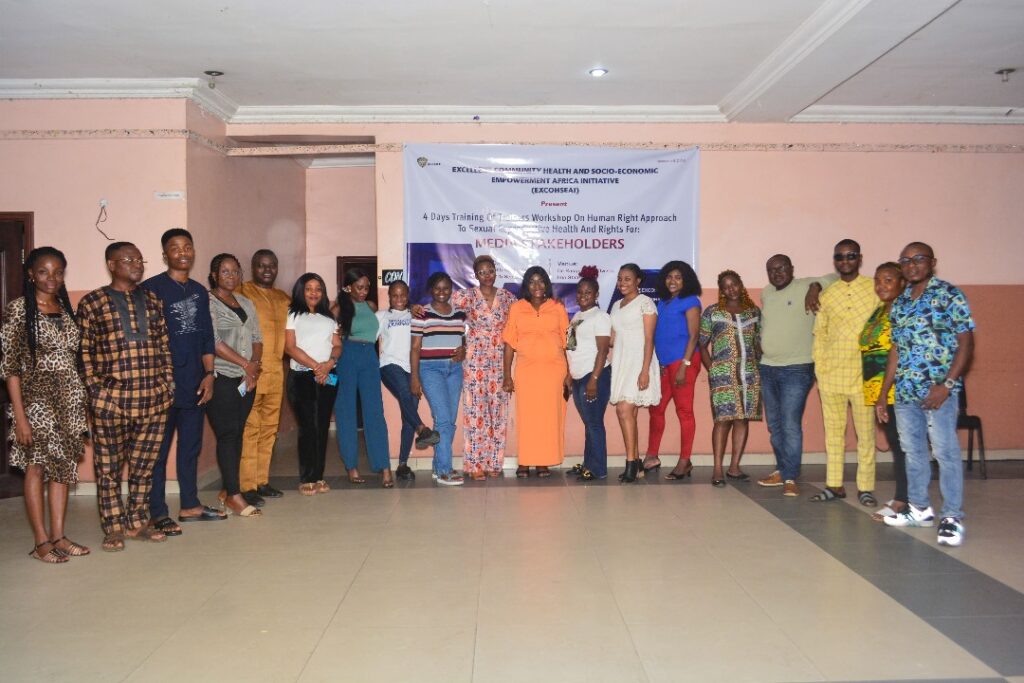
The recent awareness and advocacy for the Sexual and Reproductive Health and Rights (SRHR) has drawn attention to, and opened a broad spectrum of rights abuses and gross dehumanization faced by people living with Human Immuno-Deficiency Virus (HIV) and Acquired Immuno-Deficiency Syndrome (AIDS), in public health care facilities.
Recently, the Excellent Community Health and Socio-economic Empowerment Africa Initiative (EXCOHSEAI), a people-oriented advocacy, Non-Governmental Organization organised a train the trainer programme for media practitioners, aimed at driving the message of SRHR to the remotest of the hinterlands.
The media roundtable prioritized, and with a pragmatic approach, the ardent need for education, legislation and attention to the plight of the aforementioned key population, with resolutions as well as recommendations for the way forward.
The persons at increased risk of contracting HIV/AIDS, owing to specific high-risk behaviours, otherwise known as the Key population are the centre piece of this advocacy, as there is an urgent need to stem the tide of stigmatization of these people and make for increased access to adequate and qualitative medical care.
Among the key population are sex workers, who have variously been tagged all manner of demeaning, degrading and outrightly dehumanizing terms, making them instantly marked for abuse.
A research, recently conducted and available online points to the fact that out of the estimated Two Million (2,000,000) people living with HIV/AIDS, in Nigeria, only about Four Hundred Thousand (4,00,000) of that population are sex workers, which comes up to about twenty percent. This, surprisingly, raises concern as to who or which group of persons constitute the remaining eighty percent population.
There is, therefore, an urgent need to educate people about the dangers of HIV/AIDS, the attendant risks associated with choice of sexuality, of which, by the way, everyone is entitled to theirs.
The media roundtable recommendations centred on the need to legislate legalization of sex workers, so as to reduce the incidence of stigmatization and make it easier for them to access public medical facilities without fear of abuse or ill-treatment, under any guise.


